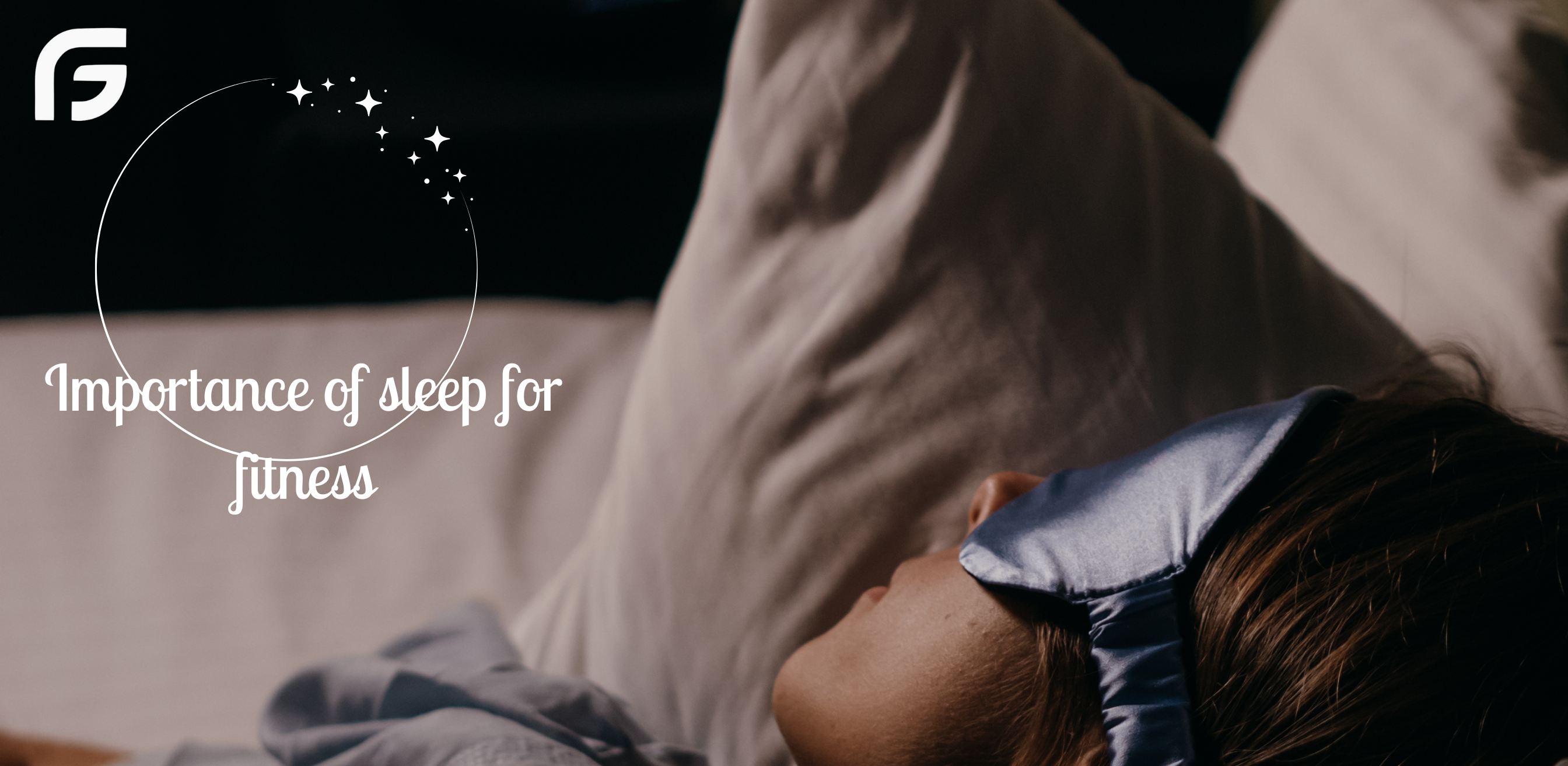Introduction
The importance of sleep for fitness cannot be overstated. While diet and exercise often take center stage, sleep plays a vital role in recovery, performance, and overall health. Whether you’re looking to build muscle, lose weight, or improve endurance, prioritizing quality sleep is essential for achieving your fitness goals.
In this blog, we’ll explore the importance of sleep for fitness, how it impacts your performance, and actionable tips to optimize your rest for maximum results.
Why Sleep Is Crucial for Fitness
Sleep is the body’s natural recovery process and a key factor in fitness success. During sleep, your body repairs muscles, restores energy, and balances hormones. Ignoring the importance of sleep for fitness can lead to reduced performance and slower progress toward your goals.
Key Benefits of Sleep for Fitness:
- Muscle Recovery: Sleep promotes the release of growth hormones essential for muscle repair and development.
- Improved Performance: Quality sleep enhances strength, endurance, and coordination during workouts.
- Weight Management: Adequate sleep regulates hunger hormones, supporting a balanced diet and fat loss.
Learn more about the importance of sleep for fitness at Sleep Foundation.
How Poor Sleep Affects Fitness Goals
Ignoring the importance of sleep for fitness can significantly hinder progress. Here’s how sleep deprivation impacts your fitness journey:
- Delayed Recovery: Without proper rest, your body struggles to repair muscles, increasing the risk of overtraining and injuries.
- Reduced Energy Levels: Sleep deprivation zaps your energy, making workouts feel harder and less effective.
- Hormonal Imbalances: Poor sleep disrupts hormones like leptin and ghrelin, leading to increased hunger and cravings.
- Weakened Motivation: Lack of sleep affects mental clarity and motivation, making it harder to stick to your fitness routine.
How Much Sleep Do You Need for Fitness?
To fully realize the importance of sleep for fitness, adults should aim for 7–9 hours of quality sleep per night. Athletes or those engaging in intense training may need even more to support recovery and performance.
Signs You’re Not Getting Enough Sleep:
- Persistent fatigue despite regular workouts
- Increased muscle soreness or slower recovery times
- Difficulty concentrating during exercise
Pro Tip: Use wearable devices or apps to monitor your sleep patterns and ensure optimal rest.
Tips to Optimize Sleep for Fitness
Understanding the importance of sleep for fitness is one thing; implementing strategies to improve it is another. Here are actionable tips to enhance your sleep quality:
1. Establish a Sleep Schedule
Go to bed and wake up at the same time every day, even on weekends. A consistent routine helps regulate your internal clock.
2. Create a Restful Environment
- Keep your bedroom dark, cool, and quiet.
- Invest in a comfortable mattress and supportive pillows.
- Remove distractions like TVs and smartphones.
3. Avoid Stimulants Late in the Day
Limit caffeine and avoid large meals in the evening to prevent sleep disruptions.
4. Incorporate Relaxation Techniques
- Practice meditation or deep breathing exercises before bed.
- Try gentle yoga to relax your muscles and calm your mind.
Discover relaxation tips for better recovery at GrowFit Blog.
Sleep’s Role in Performance and Recovery
The importance of sleep for fitness extends beyond recovery—it also influences your ability to perform at your best. Well-rested individuals:
- Exhibit better endurance and stamina.
- Recover faster between intense workouts.
- Show improved focus and coordination during complex exercises.
Read about how sleep enhances performance at Harvard Health.
The Relationship Between Sleep and Weight Management
Sleep plays a significant role in regulating hormones related to hunger and metabolism. Ignoring the importance of sleep for fitness can lead to:
- Increased Hunger: Poor sleep raises ghrelin levels, making you feel hungrier.
- Reduced Satiety: Lack of sleep lowers leptin, the hormone that signals fullness.
- Higher Fat Retention: Sleep deprivation increases cortisol levels, promoting fat storage.
Pro Tip: Combine healthy sleep habits with balanced nutrition for effective weight management.
Mental Health Benefits of Sleep for Fitness Enthusiasts
The importance of sleep for fitness isn’t just physical—it’s mental too. Good sleep reduces stress, improves mood, and enhances focus, all of which are critical for sticking to a fitness routine.
How Sleep Supports Mental Health:
- Reduces anxiety and stress levels
- Improves problem-solving skills and focus
- Boosts overall mood and motivation
Learn how fitness benefits mental health at GrowFit Blog.
FAQs
1. How does sleep affect muscle recovery?
Sleep is essential for muscle recovery, as it promotes the release of growth hormones that repair and rebuild tissues after workouts.
2. Can poor sleep hinder weight loss?
Yes, lack of sleep disrupts hunger hormones and increases cortisol, which can lead to weight gain or stalled progress.
3. How much sleep do athletes need?
Athletes typically require 8–10 hours of sleep per night to support intense training and recovery.
4. What are the best bedtime practices for fitness enthusiasts?
Establish a consistent sleep schedule, avoid late caffeine, and create a relaxing bedtime routine.
5. Can napping help with fitness recovery?
Short naps (20–30 minutes) can boost energy and aid recovery but shouldn’t replace nighttime sleep.

